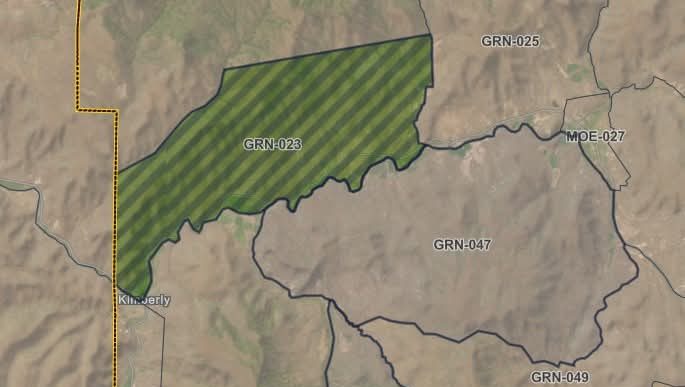Focus on digital surveillance
Published 4:00 pm Saturday, March 8, 2014
University of Oregon freshman Aubrey Correa doesn’t want to be watched.
Trending
But after taking an Internet, Society and Philosophy course this winter, she’s realized that all the electronic gadgets she uses gives government an open window into her life. Now, she’s trying to pull the blinds.
When she uses her cellphone, she does so with awareness that who she called, when and from where become data that are stored by the National Security Agency, Correa said.
She’s switched from using Google Chrome as her browser to TOR, a browser that scrambles her search data so her online movements can’t be collected and stored.
Trending
She no longer posts on social media the way she once did.
“People say, ‘Why are you concerned if you have nothing to hide?’?” she said, “But I don’t like the fact that I’m being watched so much for no reason.”
Correa helped organize a student rally in support of electronic privacy that is taking place today at the Erb Memorial Union on the UO campus. The meeting will feature members of the San Francisco-based Electronic Frontier Foundation, a nonprofit group that sues over, and lobbies for, Internet freedom.
A scholarly panel about online civil liberties, presented by the Wayne Morse Center for Law and Politics, is scheduled for this morning. The public is invited to both events.
Colin Koopman, assistant professor of philosophy and Morse Center resident scholar, said the federal government is capturing a dizzying number of details about the activities of U.S. citizens. The government fastidiously harvests and stores Internet usage and phone patterns, he said.
The Electronic Frontier Foundation for decades has been piecing the picture of domestic data gathering together from facts that whistle blowers brought to light and from documents they got obtained under Federal Freedom of Information Act lawsuits.
Then, eight months ago, former National Security Agency contractor Edward Snowden started leaking documents that detailed government spying operations.
“We were suing the NSA long before Edward Snowden. However, his revelations have come to bear in our case,” said Electronic Frontier Foundation staffer April Glaser. “They substantiate our claims.”
Among the creepiest revelations?
British and American agents spied on people at home through lap top cameras, microphones and Xbox consoles, Glaser said.
U.S. phone companies have been ordered to store telephone metadata – information about who calls or sends text messages to whom about what – for government collection, government documents show.
At an Internet hub in San Francisco maintained by AT&T, there’s an NSA room with fiber optic splitters, which, another whistleblower reports, collects and stores a replica of Internet traffic that can be mined for patterns of communication off into the future.
“The U.S. government knows who you call, for how long, perhaps where you are when you make that call. They might have your text messages,” Glaser said. “We don’t know how broadly this surveillance regime applies. We know that every phone call is taken in. And we know carbon copies of the Internet go to the NSA and data facilities across the country.”
Oregon Sen. Ron Wyden said in a letter to Attorney General Eric Holder Jr. that most Americans would be “stunned” to hear how the U.S. Patriot Act laws are interpreted by the government in secret to justify domestic spying.
It “would be alarming to the public if it knew about it,” Wyden wrote.
President Obama earlier this year ordered changes to intelligence-gathering practices in a bid to prevent the government from storing some collections of phone and electronic communication data.
Obama is hoping the changes will mollify critics at home and abroad, but some argue the changes aren’t enough.
In January, the federal Privacy and Civil Liberties Oversight Board issued a scathing report saying the NSA’s mass data collection program is illegal and should be ended. But Obama rejected the findings.
Koopman worries that with all the information amassed over the years, when a next-generation Joseph McCarthy sets out on a witch hunt, the government could analyze the amassed data and sweep in thousands of suspects.
“Imagine how much more effective and efficient McCarthy’s machine would have been if Hoover’s operatives at the FBI didn’t have to go bugging everybody’s homes in Hollywood, but had already been bugging everybody’s homes for the past 10 or 20 years because they had access to data that was already there, ” Koopman said.
The knowledge puts a chill on political speech and activism when people fear that their actions or mistakes could come back decades later in a case against them, critics said.
“Activist groups, when they come under suspicion, there’s going to be all this backlog of data on them. It really places a burden on democratic participation,” Koopman said.
Added Glaser: “Surveillance is what governments use to repress, to profile. We’ve seen this with the Stasi (East German intelligence). Look at other governments that have enacted statewide surveillance. It’s frightening.”
A bill in Congress, the USA Freedom Act, would restrict the NSA’s collection and analysis of massive databases containing domestic communications.
The bill was written by Rep. Jim Sensenbrenner, R-Wis., author of the U.S. Patriot Act, who’s now opposed to how far the NSA has gone with bulk data collection.
“We’re in this critical social moment where we all have to decide what we want to keep private and what we don’t,” Koopman said. “The (technological) capacities always exceed or outpace what we would deem moral and legitimate. It’s really about figuring out that line, where does morality sit?”
In the meantime, Glaser said, cell phone and Internet users should assume the government is watching their every move if they are not taking steps to protect their privacy, such as using an browser such as TOR.
“If you’re changing your clothes with the light on and the curtain open,” she said, “then people are going to be able to see you.”
Follow Diane on Twitter @diane_dietz. Email diane.dietz@registerguard.com.









